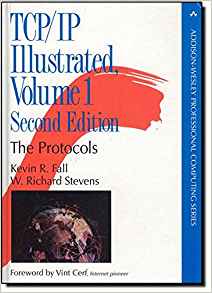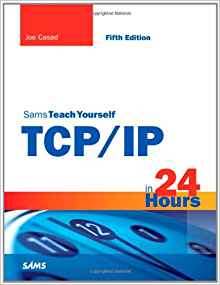quick random jot-downs, on TCP/IP, on Tech Writing
some quick random jot-downs, on computer networking, on tech writing.
in past 3 days, working day'n'night to review my tcp/ip know-how. haven't really touched that for 10 years.
in the process, as usual, writing down notes that's tutorial-to-be.
- TCP/IP Tutorial for Beginner
- Linux: Networking Commands Tutorial
- Windows: Networking Commands Tutorial
it's quite time consuming to write. Most of it is draft, and lots just partial quotes from Wikipedia. (but, for this or any kinda endeavor, it's almost better to start somewhere rather than master-plan)
tidbits about tech writing: approach and style
(and, you see, in my tutorials, i aim to write it in a particular style, which made it more time-consuming, because on one hand i'm still learning, trying to avoid error, while, writing tutorial with a particular approach really calls for full understanding first.
Pertaining to style, there's the approach aspect and writing (diction, grammar, syntax, format, etc) aspect. The writing aspect i've described here The Writing Style of Xah Lee (2010), but i don't think i ever expounded my approach aspect.
But to illustrate quickly, for example, in language tutorial i treat the lang as piece of math written on paper, focusing on what you can see (i.e. what you typed) and observable behavior, and avoid the typical unnecessary mentioning of the garbage underneath such as int, float, IEEE number, memory, reference, pointer, “garbage collector”, compiler mumbo-jumbo, lang internal “model” (where each lang's priest sell you shit and believers buy it like hot cake), and spurious jargons particular to each lang community. (typical tutorials suck. For example, in OOP, they like to mention fruit, banana, apple when trying to teach class hierarchy or inheritance. The worst example of incomprehensible techno-babble is Python's doc (and unix man). 〔see Python Documentation Problems〕 While the worst example of jargon-babble is the Perl doc. 〔see Perl Folks Try to Erase History!〕 The best example, similar to my style of approach, is PHP doc, Mathematica doc. 〔see Unix, Python, Perl, Haskell, Doc Idiocies (2011)〕 ) )
(this quick post got ran on and now turns out to be masturbation. O, good for me. LOL)
btw, there's a O'Reilly book Linux Network Administrator's Guide. Latest edition is 3rd edition, 2005. But all the online edition i found is 2nd (2000) or 1st, 13 years out of date garbage, and frequently cited online. Even the 3rd edition, is pretty much garbage. (and btw, the online edition, don't mention date or edition. You have to do some digging to find out what edition it is. Really hate that. (If you are a blog writer, please put a date on your articles, and your name in a well-lighted place. (yes you, hacker-types) Unless, you conspicuously, absolutely, wanted to be anonymous. In that case, put explicitly “by Anonymous”. (what most hacker-types do is, on one hand they don't want to be totally anonymous, they use a “handle” (aka nick), while, have all sorts of qualms and insecurities about their identity, while, they don't really want to be truely anonymous, they just want to make it a trip for those who want to identify the author, while, all this is really not thought out, it's just one of the behavior of the hacker-type mindset)))
Why the O'Reilly book is so bad? Of course, it's one of the first “open source book”, to please Richard Stallman's “Free Software needs Free Documentation” mantra. The problem is, vast majority of people don't really give a damn, they just want it $free$. So, there's really no incentive for O'Reilly to update it, or make their site of the book updated, other than the initial “we support freedom” marketing. So it's badly out of shape, while, commercial books on TCP/IP, you pay to get it on amazon, are much better quality. 〔see Software Freedom is Free Speech or Free Beer (2010)〕
btw, there's another free book, Debian Reference, Chapter 5. Network setup, that's also pretty bad.
my current references, besides Wikipedia (and possibly following citation to standard publications such as RFC (aka Really Faaking Common)), is the

Verbose to the bone, but at least it's trust-worthy source. (i much prefer Wikipedia actually) (i read few chaps of that TCP/IP book a decade ago.)
this is a better book. To the point.
